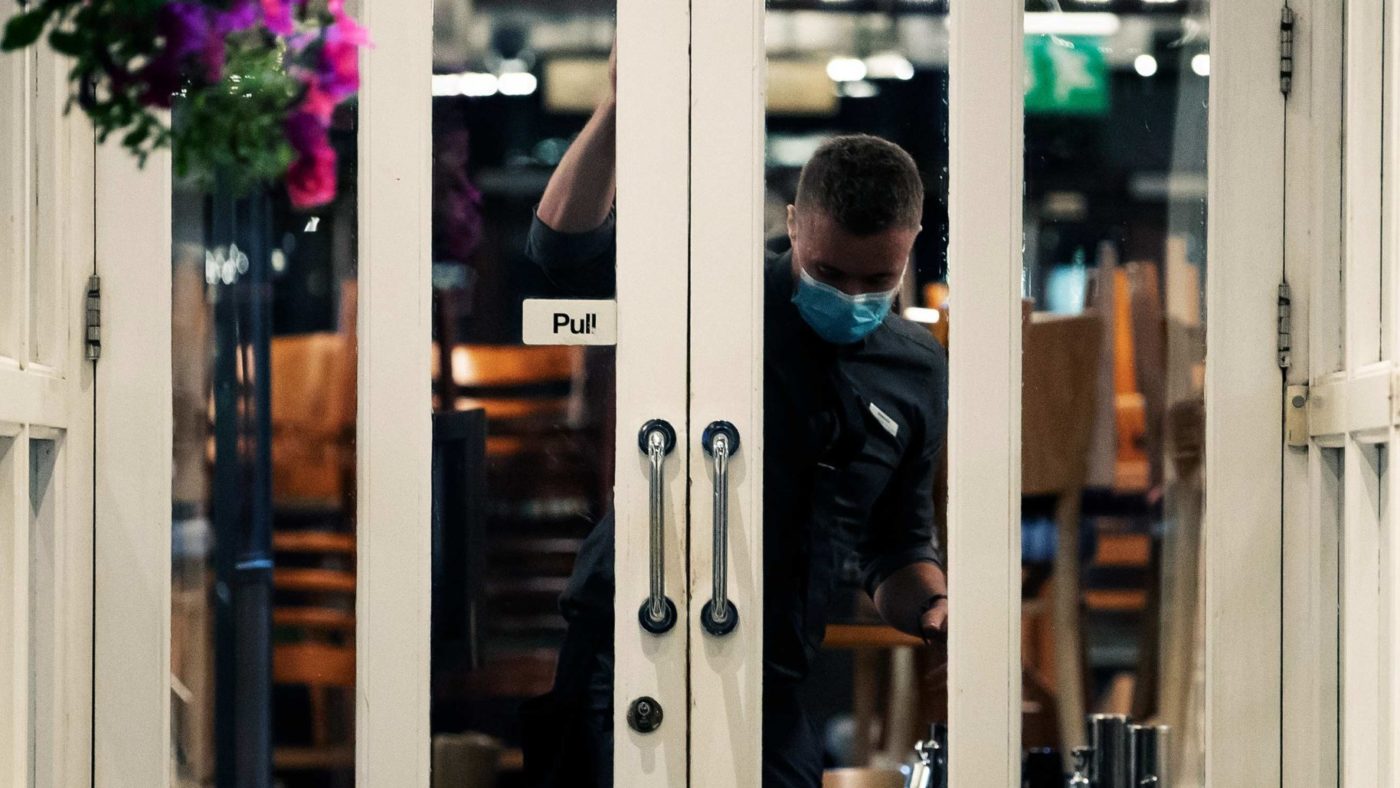From tomorrow, those in the north-east will no longer be able to meet people from outside from their own household except in public, outdoor places. They have already been banned from mixing with people outside their household in private homes and gardens. The new restrictions will apply to pubs, restaurants and all other indoor venues.
Matt Hancock says the new restrictions are necessary because “the number of cases continues to rise sharply”. In fact, both the number of positive tests and the number of people admitted to hospital with Covid-19 in the region have been lower in recent days than they were at the peak on September 23. That could change, of course, and the trajectory scarcely matters since the government now treats any incidence of the virus as unacceptable. As has become customary, ministers have given no indication of how long the regulations will be in force.
The new rules do not amount to a lockdown, but the 2 million people affected may find it hard to tell the difference. Shopping and pubs are about all they have left. This is the Government’s concession to the economy but, as Jonathan Portes notes, economists are interested in maximising wellbeing and happiness (often termed ‘utility’) rather than financial transactions per se.
The new rules not only increase the number of forbidden venues, but add to the penalties. Those who break them will be fined £200, doubling for subsequent offences to £3,200. The same fine already applies nationwide to those who break the ill-conceived ‘Rule of Six’ that has been stopping many families mixing with other families (or, in the case of large families, anybody) since September 14. Failure to self-isolate now carries a £4,000 fine. Those who facilitate a gathering of more than 30 people can be fined £10,000. Pubs face a £1,000 fine if they play music above 86 decibels or allow dancing.
Matt Hancock seems to be having the time of his life playing the part of an intimidating headmaster, but the plethora of new laws and penalties is a sign of weakness, not strength. Consent is slipping away.
One of the many things the Scientific Advisory Group for Emergencies (SAGE) was wrong about in the spring was how easy it would be to get the British public into lockdown. Speaking in late April, SAGE’s John Edmunds said it “was difficult to imagine just how easy lockdown was, that people would go along with it”. Buoyed by our apparent obedience, the Government maintained most of the restrictions throughout May and June, long after the original objective of protecting the NHS had been met. Pubs and restaurants did not open until July 4, three and a half months after lockdown began.
This may have been a big mistake. In terms of breaking the cycle of transmission, lockdown produced diminishing returns after April. By slogging on until July – despite an exceptionally sunny spring which worked against the virus – the Government exhausted large numbers of people who now feel that they have done their bit. People have come to realise that this is not the bubonic plague, that the fatality rate is much lower than first feared, that the young are almost invulnerable to it and that Sweden has had a lower death toll despite never locking down at all. There are some daft conspiracy theories too, but the plain facts are enough to avoid public hysteria on the level of this year’s March madness.
Bien pensants scoffed at the idea of ‘lockdown fatigue’ because there was no hard evidence that it existed. How could there be? We were in uncharted territory. But, to greatly paraphrase Orwell, only an intellectual could believe that locking people up for months while their jobs evaporate won’t make them lose patience and flout the rules. People went into lockdown more out of fear of the virus than fear of punishment.
As fear diminishes, particularly among those who are at least risk, so does consent. The increasing severity of the punishments is a sign that the authorities are losing their grip. People can see that the 10pm ‘curfew‘ is creating the unintended consequences that every bar-stool epidemiologist predicted. The laws are becoming more preposterous, the threats – such as keeping students prisoner over Christmas – less credible.
The Prime Minister seems to think that he can keep this up for “perhaps six months”. We shall see.
Click here to subscribe to our daily briefing – the best pieces from CapX and across the web.
CapX depends on the generosity of its readers. If you value what we do, please consider making a donation.


